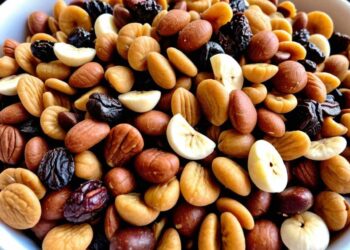Discover the link between hydration and menopause symptoms, plus tips on staying properly hydrated for better health.”
Your Guide to Menopause and Dehydration:
Menopause is a natural transition in a woman’s life, often accompanied by various symptoms such as hot flashes, night sweats, and mood swings. One lesser-known factor that can contribute to these symptoms is dehydration. Staying hydrated is essential during menopause, as water plays a crucial role in regulating body temperature, supporting organ function, and maintaining overall well-being. This article explores the relationship between dehydration and hot flashes, the health benefits of proper hydration, and effective strategies for staying hydrated during menopause.
Can Dehydration Cause Hot Flashes?
Hot flashes are one of the most common and uncomfortable symptoms of menopause. They are characterized by sudden waves of heat, excessive sweating, and flushing of the skin. While hormonal fluctuations are the primary cause, dehydration can exacerbate these symptoms.
Water helps regulate body temperature, and when the body is dehydrated, it struggles to cool itself effectively. This can lead to an increase in the frequency and intensity of hot flashes. Additionally, dehydration can trigger other menopause-related symptoms, making hydration a key factor in managing menopausal discomfort.
Health Benefits of Hydrating During Menopause:
Proper hydration offers multiple health benefits that can alleviate common menopause symptoms. Drinking enough water each day can contribute to improved overall health and comfort during this transition.
Reduced Bladder Irritation :
Dehydration can lead to concentrated urine, which may irritate the bladder and increase the frequency of urinary tract infections (UTIs). Drinking sufficient water helps flush out bacteria and maintain urinary tract health.
Relief from Dry Skin:
Many women experience dry and itchy skin during menopause due to decreased estrogen levels. Staying hydrated supports skin elasticity and moisture retention, reducing the severity of dryness and irritation.
Fewer Headaches:
Dehydration is a common trigger for headaches and migraines. Since menopause can also contribute to an increased frequency of headaches, maintaining proper hydration can help minimize their occurrence.
Symptoms of Dehydration During Menopause:
Recognizing the signs of dehydration can help you take proactive steps to stay hydrated. Some common symptoms of dehydration during menopause include:
- Brain Fog – Difficulty concentrating, memory lapses, and mental fatigue may be linked to inadequate hydration.
- Fatigue – Feeling constantly tired or sluggish could be a sign that your body lacks the necessary fluids to function properly.
- Achy Joints – Water is essential for joint lubrication. Dehydration can lead to increased stiffness and discomfort in the joints.
How to Properly Hydrate During Menopause:
Hydration needs can vary based on lifestyle, activity level, and environmental factors. Here are some key situations where you should pay extra attention to hydration:
- Exercise – Physical activity increases fluid loss through sweat, making it essential to drink water before, during, and after exercise.
- Hot Weather – High temperatures and humidity can lead to excessive sweating, causing dehydration more quickly. Be sure to increase your water intake on hot days.
- Illness or Other Health Issues – Fever, vomiting, and diarrhea can contribute to dehydration. If you’re feeling unwell, drink plenty of fluids and consider electrolyte-replenishing beverages.
What Are the Best Liquids for Hydration?
Not all liquids provide the same level of hydration. Some of the best choices for staying hydrated during menopause include:
- Water – The best and most natural option for hydration.
- Herbal Teas – Caffeine-free options like chamomile and peppermint tea can provide hydration and additional health benefits.
- Coconut Water – A natural source of electrolytes that helps replenish fluids.
- Infused Water – Adding slices of lemon, cucumber, or berries can make water more enjoyable and add essential nutrients.
Which Beverages Should Be Avoided?
Certain drinks can contribute to dehydration and worsen menopausal symptoms. It’s best to limit or avoid:
- Caffeinated Beverages – Coffee and soda can have a diuretic effect, leading to fluid loss.
- Alcohol – Consuming alcohol can contribute to dehydration and trigger hot flashes.
- Sugary Drinks – High sugar content can cause blood sugar spikes and crashes, exacerbating fatigue and mood swings.
Stay Hydrated During Menopause:
Staying hydrated is a simple yet powerful way to manage menopausal symptoms, including hot flashes, dry skin, and fatigue. By making conscious efforts to drink enough water and choosing hydrating beverages wisely, you can improve your overall well-being during this transition. Pay attention to your body’s signals, adjust your fluid intake based on activity level and environmental conditions, and prioritize hydration as an essential part of your menopause management plan.
Conclusion:
Proper hydration is essential for managing menopause symptoms and improving overall well-being. By staying mindful of your fluid intake, you can support your body’s needs and ease common discomforts during this transition.
AlsoRead:










Discussion about this post